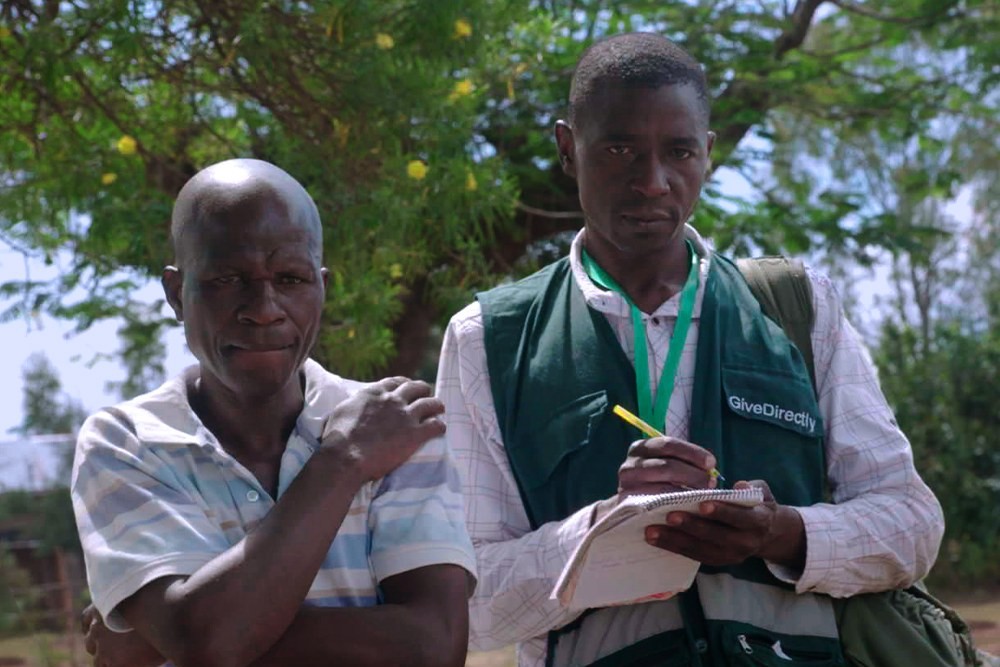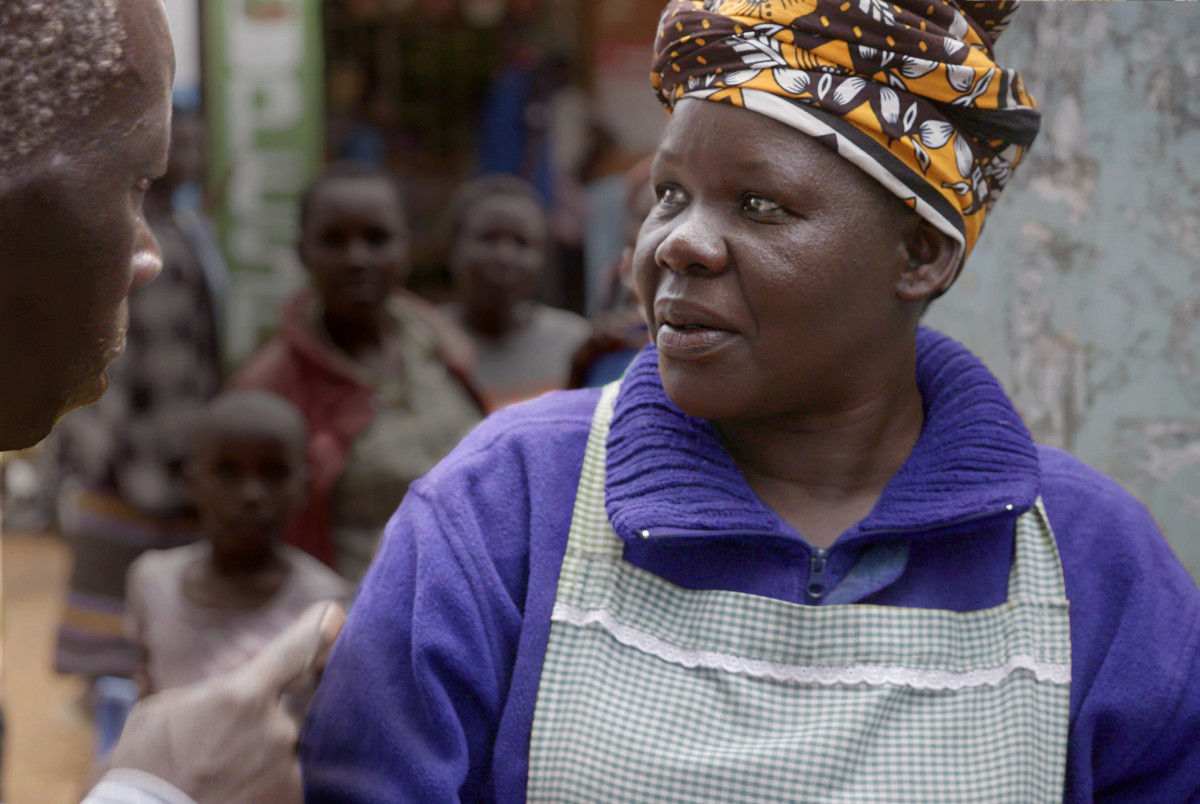
Does universal basic income (UBI) actually work in real life? That is the question posed by the 2022 documentary “Free Money,” which follows the nonprofit Give Directly in its quest to solve poverty via an experiment: providing the global poor with universal basic income over the long term.
The film, directed by Lauren DeFillippo and Sam Soko, was nominated for 2023 Best International Film at Docaviv, Tel Aviv’s flagship documentary film festival, and premiered on Netflix on Sept. 1. It is a sharp and nuanced analysis of how Give Directly, funded by the American high-tech sector, has impacted the daily lives of the residents of the village of Kogutu, Kenya for better and for worse as they receive $22 per month over the course of 12 years.
The scheme was dreamed up by Michael Faye, Give Directly co-founder. As the documentary begins, Faye explains his theories: the NGO sector is deeply flawed, as many donations do not actually reach those in need. Global wealth inequality is growing massively, with poverty worsening. And research has shown that direct cash transfers have a strong record of alleviating poverty, as opposed to measures like vouchers or food stamps. So why not just give directly to the poor, making sure the money goes straight to their pockets?
"It's a different way of thinking about economics"
Faye decided that it was a model that needed concrete data to back it up, which could only happen with real people in order to produce real-world results. After receiving an initial grant of $2 million from Google for the experiment, Faye and his colleagues set about establishing Give Directly in what is now 11 countries, making it one of the world’s fastest-growing nonprofits.
“This is a different way of thinking about economics,” he explained. “[It’s] a method that is used to test drugs and pharmaceuticals. There’s an A/B test where you have a placebo, and you have a treatment and you compare.” But in this experiment, the “treatment group” actually receives $22 monthly over the course of 12 years, which could massively change the trajectory of their lives. The question was: what would they do with the money? How would it affect them?
Give Directly is directly modeled off of UBI, where every adult, regardless of status, would receive a set amount of money regularly. The thinking is that this would cut out the middlemen, get rid of any unnecessary bureaucracy and promote equality. UBI has emerged at the forefront of global debate: when Andrew Yang championed it in 2020 as a candidate for Democratic nominee for US President, he was derided widely as a socialist, a dreamer, wildly unrealistic. However, as the pandemic wreaked widespread economic devastation around the world, many countries, including Israel, experimented with short-term policies that involved equal cash payments as a way to buoy the economy and provide a buffer from the fall into poverty.
It is undeniable that more money helps, at least in the short term. Many of the villagers of Kogutu, Kenya, which was randomly chosen for the experiment, at first reacted to the proposal with great suspicion and doubt. After all, explains Kenyan reporter Larry Madowo, many NGOs have come to Kenya to try to help, and have often done more damage than good.
“There’s an absolutely heartbreaking example of this in a village where you can see all these really nice half-built houses without roofs,” he said. “An NGO came and said, build a house and we will come back to put the roof on it. So everyone sold their cows, whatever they had, and they basically got in debt to build these houses. But the NGO never came back.”
“I’m a little skeptical of white saviors, with good reasons,” Madowo added.
However, as it became clear the concrete impacts the money could have in their lives, most of the villagers signed up to receive it with joy. This relatively small amount of $22, which they received directly through their phones, made a huge difference in the daily quality of life: one villager repaired their home, another fixed a pump, providing clean drinking water close to home. Many planned, investing the money little by little in their business, or saving the money to go to university.

The villagers’ most impressive measure, however, was the founding of a Kogutu collective fund. Each adult receiving the transfer would give a certain amount monthly to the communal pot, and once a month, a committee would decide on a worthy recipient for the money. This was a form of communal resilience from pre-existing collective frameworks of the village, aided but not invented by an external, Western organization.
"Playing God with people's lives"
The UBI experiment brought up a raft of serious dilemmas, along with its benefits. There was a question of what happened to the villagers once the 12-year period expires – would they fall back into the same poverty they were granted a brief respite from? How much would this money affect their financial status in a long-term way? Additionally, the money exacerbated pre-existing local inequalities: Kogutu’s neighboring village, even poorer, was not chosen for the project, causing resentment and rifts between neighbors.
Even accidental technical issues with registration for the program caused great difficulty and pain among the villagers. Jael, a schoolgirl, happened not to be at home while the Give Directly workers were registering villagers. She was not registered and never received her transfers, despite multiple attempts at contacting the organization and asking for help. Meanwhile, her best friend received her money and was able to attend a better school outside the village, something Jael dreamed of. Here, the bureaucracy remained an obstacle for Jael and her family.
In general, “Free Money” raises an important ethical dilemma. Is it moral to use people as an experiment for the sake of gathering data, when their lives may be deeply impacted? Do the benefits of having the money outweigh the added complexities, the inequalities, the expectations? Does it matter that it’s an NGO funded by the West providing them with their sustenance, rather than the government and welfare systems of their own country?
Madowo calls it “playing God with people’s lives.” He maintains that UBI is essentially a good thing, but it is not a magic bullet that can end poverty once and for all. Real solutions must be context-specific and sustainable.
“This experiment is being run on poor people,” he said. “Some entity on the other side of the world thinks they are all-knowing and they can come to the developing world and have the solution that is potentially harmful, that is potentially dangerous. And if people do get their lives wrecked, there is nowhere for them to go. There is no authority for them to turn to. And [Give Directly] has no consequences.”






